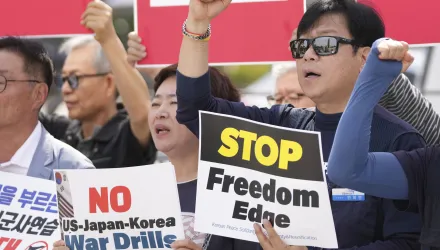International Security is America's leading peer-reviewed journal of security affairs.
Summary
Is military intervention effective in spreading democracy? Existing studies disagree. Optimists point to successful cases, such as the transformation of West Germany and Japan into consolidated democracies after World War II. Pessimists view these successes as outliers from a broader pattern of failure typified by cases such as Iraq and Afghanistan. Those in between agree that, in general, democratic military intervention has little liberalizing effect in target states, but contend that democracies can induce democratization when they explicitly pursue this objective and invest substantial effort and resources. Existing studies, however, often employ overly broad definitions of intervention, fail to grapple with possible selection effects in countries where democracies choose to intervene, and stress interveners' actions while neglecting conditions in targets. Astatistical examination of seventy instances of foreign-imposed regime change (FIRC) in the twentieth century shows that implementing prodemocratic institutional reforms, such as sponsoring elections, is not enough to induce democratization; interveners will meet with little success unless conditions in the target state—in the form of high levels of economic development and societal homogeneity, and previous experience with representative governance—are favorable to democracy. Given that prospective regime change operations are likely to target regimes in poor, diverse countries, policymakers should scale back their expectations that democracy will flourish after FIRC.
Monten, Jonathan and Alexander B. Downes. “Forced to Be Free? Why Foreign-Imposed Regime Change Rarely Leads to Democratization.” Spring 2013
The full text of this publication is available in the link below.







